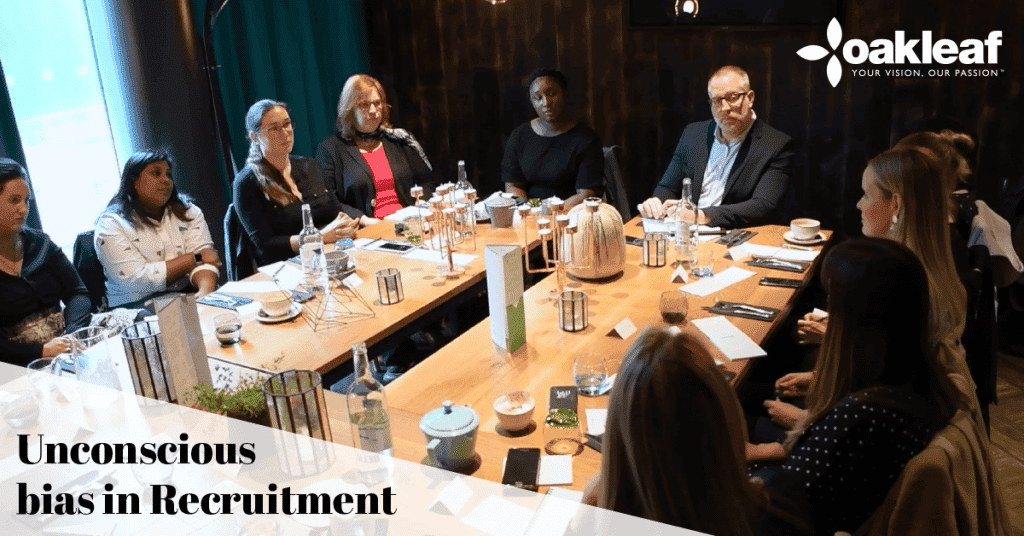Market Update by Industry
However, “It’s a very, very, Mad World”……
37 years ago, in 1982, the band Tears For Fears reached number 3 in the charts with Mad World. The line from the song that resonates with me today is as follows:
“When people run in circles, it’s a very, very, Mad World”.
Well, there are lots of circles being run today and we find ourselves in strange times indeed. For the professions we are proud to represent and partner, the challenges are as acute as ever. The need for innovation, courage and strong leadership are as great as they have possibly been.
In my last update, I quoted Matthew Syed’s view on Saracens RFC (ongoing) success, and I’d like to repeat the quote, for context:
“…their management realised that character and initiative, so often stifled in our world, must be given the chance to flourish”.
Never, in recent times, have those words held more true for UK plc (and by the time you read this, I’m almost certain Saracens will have clinched the “double”!).
Coping with change is critical and something that is pretty much at the forefront of all business agendas today, be it a result of changing/increasing regulation, service/product delivery models, technological innovation/disruption and so on, as well as (apart from anything else) the changing nature/demands of our workforce.
On that note, I recently read a very good article in HR Director magazine by Sahar Hashemi OBE, based on her book “Start-Up Forever: How to Build a Start-Up Culture in a Big Company”. Some of the themes mirror those in The Founders Mentality (Zook/Allen), which is another cracking read. Hashemi talks about how corporate cultures accrete as the behaviours of (all) individual employees build up and calcify. It’s basically describing how big businesses become somewhat set in their ways and fail to respond to change. She states:
“The solution that presents itself, again and again, is not some giant reorganisation or top-down innovation initiative. Instead, it’s simple shifts in mindset and behaviour that start with one person or one team and then spread around the business, building up big changes from many small tweaks. It’s a few individuals thinking and acting more like entrepreneurs…..”.
This whole process is fraught with obstacles but is fundamentally about developing new institutional muscle memory. Time and time again we hear of Big Co. PLC challenges exactly of this nature and my feel is that not only will profitability start to wane (it often does) but trying to attract talent in today’s market will become harder and harder: people are increasingly turned off by the culture.
As someone who is technically an entrepreneur (although I must confess, I’m not sure I ever really set out to be one!), I thought I would share my own thoughts on the entrepreneurial spirit/mindset and some key learns from the 14-year-old Oakleaf journey, from a concept through to an 82 colleague, £20million turnover, market leader.
The first question to ask is: “What’s your reason for starting out on your own in the first place?”. If it’s just about the money, then think again! I was personally struggling with the stifling, non-creative culture of my previous firm and realised (probably after putting up with it for far too long) that this wasn’t a firm that played to my strengths*.
*Single-minded, driven, obsessive, self-doubting, creative, risk-taker (Army, motorbikes, free-fall, scuba), unselfish leader, competitive, thinks everyone else is more interesting than me, loyal, fun etc. All my own views!
Delivering entrepreneurial change (including setting up your own business) demands a variety of skills but I’m going to focus on my own two personal favourites – courage and leadership.
Courage: I should have had the courage (and self-belief) to realise my lack of culture -fit much earlier but when I took the leap, I knew I had the drive to follow it through, although I quite often had to have a motivational chat with myself to keep on going! Moral courage, for me, is a massive success factor.
I knew that “doing the right thing by people” would pay dividends: I think it does in any business. Now that doesn’t mean being soft, it simply means treating people fairly, challenging them to be their best, engaging them (letting them have a voice), rewarding them fairly and allowing them to be themselves. It also means having the moral courage to have tough/honest conversations and make tough decisions, as well as admitting when you’re wrong. Yup – happens now and again!
Leadership: I was lucky enough to attend the Royal Military Academy, Sandhurst after Uni before serving nine years in The Royal Anglian Regiment (two operational tours). I also worked for nearly 3 years for the best leader I have ever met. Here are my takeaways, of which I remind myself every day:
Always set high standards: personal and professional – people will mirror your behaviours, actions, words, even moods!
No double standards: never ask people to do stuff you’re not prepared to do yourself, don’t be tempted do their job for them! Lead from the front and don’t get so stuck into the fight so much that you lose perspective of the broader mission.
You don’t have a monopoly on good ideas: ask people for their thoughts (which is also a great engagement tool). Try and let them “own” solutions if possible. It’s far easier (and less time consuming) to tell people what to do. I’ve always tended to do the opposite in that situation!
Never be too busy for your people: get to know them and understand their motivations, strengths and weaknesses. Don’t allow them to become needy. Treat everyone with respect and humility, you must work to earn their respect, not their friendship. Celebrate their successes! You must genuinely care about people to make this effective and be a truly authentic leader – don’t try and pretend to be something you’re not (it’s OK to pretend to brave when you’re really not!).
Be mission focused and be bold: don’t take risks with other peoples’ livelihoods, do empower them and allow them to take some risks.
Have a vision and paint that vision for your people on a regular basis: be passionate about your vision. Leadership is as much about communication as anything else.
As Hashemi says in her summary:
“You could use this moment to make your organisation not just far more successful, but far more human”.
Never a truer word…
As the founder and CEO of Oakleaf, I feel an incredible sense of both responsibility and duty towards my colleagues. I never take my position for granted and consider it a total privilege to lead such a bunch of talented, driven, caring people. I always put Oakleaf and my colleagues before my own needs and work as hard as I possibly can to keep driving the business forward whilst keeping a close eye on cultural alignment with our values.
As the late, great Niki Lauda once said:
“I believe in living a life that involves a lot of risk. If you don’t take risks, you can’t ever expect it to be a success. It would all be far too boring”
I hope you might take something away from my short ramble and I equally hope you enjoy the market/business update summaries to follow. As ever, if you would like to discuss any of the points arising, please feel free to contact me directly.
Richard Colgan
Founder & CEO

Market Update by Industry









